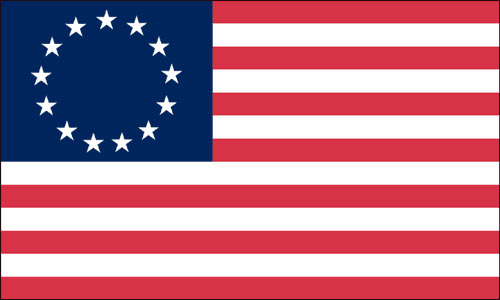I put the boat in the water Thursday. I am going to be a support boat for a sailboat race today to help out the boat club. Putting the boat in the water Thursday means I do not have to get up extra early Saturday, and deal with the trailer.
It also means the boat was floating Friday, ready to take out for a quick ride. Which was part of the plan.
And so it happened. I call a friend of mine and tell her to come to the boat club. We will then head off and go to someplace on the Miami River for food and drinks. Arrival will be - of course - by sea.
Thus taking care of many things at once. A boat ride. Food. Some sightseeing. Time together. And so on.
Leaving the place on the river, I turn on the radio. It is set to channel 16. Channel 16 is for distress, urgency, safety, and hailing. Channel 16 is always on in my boat. Most of the time it is just background noise - but sometimes something important happens. Such will be the case tonight.
Off in the distance I can see flashes of light - alerting me that somewhere there was bad weather. It was not too close, as I could not hear the thunder. I could only see flashes of light. As I make my way down the river, a voice comes over channel 16.
It is the US Coast Guard radio watch stander, telling everyone listening that for urgent weather information turn to channel 22a. So I turn to channel 22a. The flashes of light are indeed indicators of bad weather. Wind gusts up to and in excess of 50 mph were reported. All mariners were advised to avoid the weather if possible. The smaller your boat, the more you want to avoid the weather.
No big deal. I had no intention of getting caught in the rain anyway. I was close to the club and if I had to - I would ignore the slow speed zone. There was no boat traffic anyway.
I point out to my friend (who is learning boat stuff) some of the signs that the weather could turn shitty. Other than the flashes of light which seemed to be getting closer, there were other signs too. The wind was picking up. Earlier the wind was still - and now it was blowing. The wind was also cool - which was actually very nice.
I make the decision to go back to the club, and not taking an extended night time cruise.
The radio remained fairly quiet for the next 15 minutes, then the weather information is repeated. This time I do not turn to channel 22a. I am very close to port.
As I am retrieving the small fender I attached to the line I left tied to the mooring buoy, I hear another voice on the VHF radio. The voice sounds somewhat calm, yet not quite right. Something is going on. I do not know what, but something tells me that this call is not ordinary.
I slip the line tied to the mooring buoy to a stern cleat, and bring in the fender I was using as a float. I am now almost all tied up.
There has just been a collision at sea. One boat ran over a flats boat. The voice on the radio is reporting it. I do not know if the person making the call was involved in the collision, but I get the impression that whoever it was simply witnessed the event.
Flats boats sit very low to the water. They are designed to not draw much water. They can get into very shallow areas. To be able to do this, they have very little freeboard - or very little distance from the water to the gunwale.
Knowing this, I instantly get a picture of what probably happened. Something ran clear over the flats boat. This is never good.
I stop tying the boat up for a second. I know that the range of VHF radio is somewhat limited. Since I was hearing another boat (as opposed to a shore station with a tall tower and powerful antenna) this has to be fairly close to where I am. The transmission was crystal clear - so the range was only a couple of miles at the most. Probably less.
More information comes over the radio. One person is dead. One more was pulled from the water. Another boat that out with the flats boat is running a search pattern, looking for more people. It is unclear how many people are involved. The flats boat is upside down and has suffered significant damage.
The US Coast Guard radio watch stander is trying to sort that out. But if one boat with people on it that knew the people on the flats boat (or other boat involved in the collision) were running a search pattern - it suggests that there were others missing.
How the person talking to the Coast Guard was remaining so calm suggests a few things. Whoever was talking was not involved - allowing them to be distanced from the event. They were also probably somewhat experienced boaters.
And here I am. I am trained to run search patterns. I know the search patterns used by the Coast Guard. The boat is in the water, full of fuel. The engine is still running. The event has to be close by, because I can hear the transmissions so clearly. I have already turned the GPS off, so I so not know my exact location when the GPS coordinates for the collision are read over the radio - so I can not really make a good estimation of the distance involved.
But I was lacking a crew. Contacting the base over the radio, identifying who I am, and offering to help could just increase confusion. Rescue units were already on the way. I had a couple of beers at the place on the river. Only 2, and with dinner - and over a good 1.5 hours of time (at least), but still. And I did not know exactly where the event happened at.
I made the decision to turn off the radio, and finish tying the boat up. There was nothing I could do. I would have probably only added confusion to the situation. Bad weather was possibly moving in, and I have an open boat with noplace to hide from lightning in. I did not have a good crew for a SAR mission.
All those factors influenced my decision. I turned off the engine and raised the lower unit out of the water.
I wonder if I made the right call.

































![[image]](http://www.torresen.com/utility/images/flags/flags.gif)
![[image]](http://www.torresen.com/utility/images/flags/flagh.gif)
![[image]](http://www.torresen.com/utility/images/flags/flago.gif)
![[image]](http://www.torresen.com/utility/images/flags/flagw.gif)
![[image]](http://www.torresen.com/utility/images/flags/flagm.gif)
![[image]](http://www.torresen.com/utility/images/flags/flage.gif)
![[image]](http://www.torresen.com/utility/images/flags/flagy.gif)
![[image]](http://www.torresen.com/utility/images/flags/flagu.gif)
![[image]](http://www.torresen.com/utility/images/flags/flagr.gif)
![[image]](http://www.torresen.com/utility/images/flags/flagt.gif)
![[image]](http://www.torresen.com/utility/images/flags/flagi.gif)





